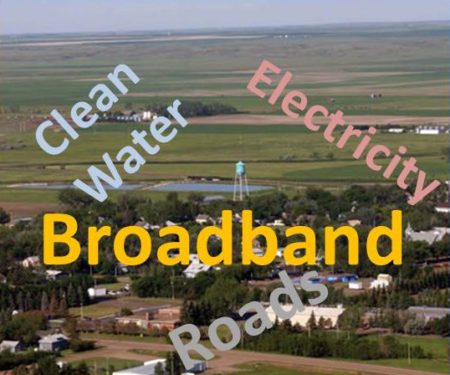
FEATURE ARTICLE – Taking Control of your Broadband Future
October 16, 2017How can communities take control of their broadband future?
Many communities continue to struggle with inadequate broadband for their community. Residents and businesses cannot get the quality broadband they need, or any broadband at all. Municipalities are impeded or prohibited in providing new services and the local economy and overall community vitality suffers. Commercial ISPs are unwilling or unable to improve local broadband and yet resist attempts by communities or regions to take control of their broadband future.
 Standing still is not an option. The status quo will not change unless communities take the initiative. However, the most common approach to solving the problem is for municipalities to build and operate their own municipal broadband network. Credit to those that do this, but in many cases this becomes a continual struggle to avoid operating losses and recover the investment, while operating in the face of strong resistance and competition.
Standing still is not an option. The status quo will not change unless communities take the initiative. However, the most common approach to solving the problem is for municipalities to build and operate their own municipal broadband network. Credit to those that do this, but in many cases this becomes a continual struggle to avoid operating losses and recover the investment, while operating in the face of strong resistance and competition.
Here is the root problem. Commercial ISPs do not invest in network expansion or upgrades because there is not enough of a business case to do so for your area. They do not see the payback they need from that investment and they have already captured the most lucrative part of your market. This model of replicating the traditional ISP model and competing in the free market, albeit with more robust broadband, is really an ‘old school’ approach and one that will always be a struggle. You need to ask yourself …
“Can we really build and operate a profitable, competitive network when the incumbent providers, who already have networks and customers, don’t see the business case to invest any further?”
Fortunately, there is a better way available to any locality serious about owning its broadband future. It starts by recognizing and embracing broadband as the essential infrastructure of the 21st century. This approach is now possible because of maturing technologies that allow you to build open access virtualized networks that not only provide the digital infrastructure your community needs, but also is a platform that opens a marketplace for internet service providers. You put local users in control rather of their future than having them held hostage to whatever is available, and you can do this without becoming an internet service provider yourself.
Let’s go out on a limb and say that there is no municipal leader who wakes up one day and says, “What I really want to do is to become an ISP”. This is only a means to achieve your true goal, which is to ensure that everyone in your community can get affordable, quality broadband if they want it. It is about providing internet access, but it is also much more than that. It is about everything you can do with digital infrastructure and smart community services that will make your community a desirable place to live and do business.
It is time for a new approach … to change the paradigm based on a broader vision. To find out more read the full article “How can municipalities take control of their broadband future?”
